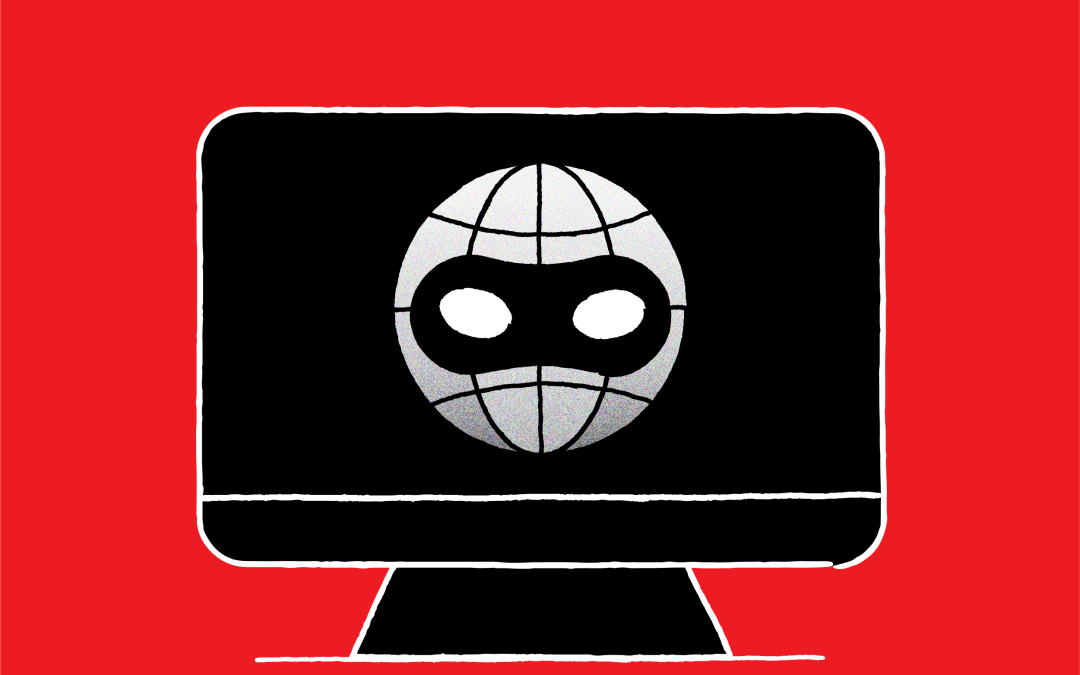Beneath the dazzling front of the digital world, a shadowy underbelly thrives, full of fraudsters, scam artists, and digital charlatans. This murky realm is where trust is a currency spent with caution, and every click could lead you further into its depths. In the dimly lit corners of the web, rogue applications lurk, scams unfold with the precision of a well-practiced heist, and fraud is the name of the game. Cybercriminals weave through the net’s vast expanse, casting wide their nets to catch unsuspecting victims. This danger urges businesses and individuals to be more savvy and vigilant against lurking fraud.
Understanding the Threat Landscape
In the vast expanse of the internet, fraud, scams, and rogue applications manifest in various forms, each designed to deceive, exploit, and profit at the expense of unsuspecting users. From phishing emails that masquerade as legitimate communications to malicious software that mimics reputable applications, these threats are as diverse as they are dangerous. Understanding the common tactics employed by cybercriminals is the first step in building a defense. These tactics include, but are not limited to, deceptive emails, fake websites, and rogue applications that can steal personal information, hijack computer resources, or trick users into making unwarranted payments.
The Legal and Ethical Implications
In the complex web of cyber interaction, legal frameworks serve as the backbone for action against digital misconduct. For instance, the Computer Fraud and Abuse Act (CFAA) in the United States sets a precedent for prosecuting unauthorized computer access, while the General Data Protection Regulation (GDPR) in Europe emphasizes the protection of personal data, impacting how businesses approach cybersecurity and privacy. Beyond these, anti-phishing laws and copyright statutes play a critical role in combating online scams and intellectual property theft, respectively.
Here in the Philippines, the Republic Act No. 10175, also known as the Cybercrime Prevention Act of 2012 in the Philippines, lists several cybercrime offenses with equivalent penalties. To name a few:
- Computer-related Forgery
- Computer-related Fraud
- Computer-related Identity Theft
- Cybersquatting
Individuals deemed guilty of violating this republic act will face fines ranging anywhere from Php 50,000 to Php 500,000 or a penalty of imprisonment depending on the gravity of the offense. Liable corporations can face fines double the amount of individual offenses, ranging anywhere from Php 100,000 to Php 10,000,000 along with criminal liabilities for the specific individual/s involved.
Ethically, the digital age demands a reevaluation of traditional moral frameworks. The anonymity and vast reach of the internet foster a space for unethical behavior, challenging individuals and corporations to maintain integrity. Tech companies, in particular, are scrutinized for their role in preventing misuse of their platforms. Ethical responsibilities include ensuring user safety, protecting data privacy, and actively preventing the spread of malicious software.
This legal and ethical landscape emphasizes a collective responsibility among governments, corporations, and individuals to foster a secure and trustworthy digital environment. Vigilance, combined with a strong commitment to ethical principles, forms the cornerstone of effective digital defense strategies.
Strategies for Detection and Prevention
To effectively guard against online fraud and scams, a comprehensive strategy encompassing both detection and prevention is crucial. This involves leveraging advanced cybersecurity tools, fostering awareness and education, and adopting best practices in digital hygiene.
- Implement Advanced Security Solutions: Utilize software that offers real-time monitoring and threat detection capabilities. This includes antivirus programs, email filtering tools, and web browsing protection to identify and block fraudulent activities.
- Partner with an expert Cybersecurity Provider: Aligning with a cybersecurity provider that offers dark web threat intelligence is crucial for real-time insights into cyber threats, enabling organizations to prioritize and mitigate potential risks efficiently by leveraging targeted, high-fidelity intelligence.
- Educate and Train: Conduct regular training sessions for employees and stakeholders on recognizing and responding to cyber threats. Awareness campaigns can significantly reduce the risk of falling victim to scams.
- Regular Updates and Patch Management: Keep all systems and software up to date with the latest security patches. Cybercriminals often exploit vulnerabilities in outdated software to launch their attacks.
- Secure Network Practices: Employ strong network security measures, including the use of VPNs for encrypted connections, secure Wi-Fi networks, and robust authentication methods.
- Verify Digital Communications: Encourage a culture of skepticism towards unsolicited digital communications. Verify the authenticity of emails, messages, and requests before responding or clicking on links.
By integrating these strategies into a cohesive cybersecurity framework, individuals and organizations can significantly bolster their defenses against the dark side of the web.
Real-world Examples
Fighting a Fake App: A notable case involved the swift action by Spotify against a rogue application that mimicked its streaming service, misleading users with a premium service scam. Spotify’s cybersecurity team detected the fraudulent app through routine digital surveillance and worked closely with both Google Play and Apple’s App Store to ensure its removal, protecting users from potential harm.
Thwarting Phishing Attempts: PayPal has been proactive in combating phishing scams. By employing advanced detection systems and customer education initiatives, PayPal has significantly reduced the impact of phishing attacks aimed at their users. Their strategy includes regular communication about how to identify legitimate PayPal communications, which has been crucial in safeguarding user data.
Messenger Pretender: With the rise of popular communication apps like Signal, Telegram, and WhatsApp, malicious developers are increasingly creating fake apps to install malware. These fake apps, distributed through phishing across various platforms, can compromise personal and financial data, and degrade device performance. ESET has identified several such malicious campaigns, such as “clippers” that are meant to exploit what’s inside a device’s clipboard, highlighting the sophistication of these threats. To protect themselves, users should adhere to best practices like using official app stores, keeping software updated, and being vigilant for unusual device activity, thereby safeguarding their digital and personal security.
Countering Counterfeits: Apple recently addressed the issue of a counterfeit Threads app in Europe, which had surged to the top of download charts, by removing the app and suspending the responsible developer’s account, SocialKit LTD. This action also led to the removal of several other apps by the same developer, including ChatGP and SelfMe, among others. This situation highlighted the challenges posed by the absence of Meta’s Threads app in the EU due to privacy regulations, sparking discussions on app sideloading. With Threads gaining immense popularity and cybercriminals exploiting this trend by creating fake domains, the incident underscores the importance of vigilance among users, especially in Europe, to avoid malware or phishing risks associated with unofficial downloads. Cybersecurity experts advise downloading apps only from trusted sources to mitigate these threats.
These real-world events highlight the necessity of vigilant cybersecurity practices, the deployment of advanced technological defenses, and the importance of educating users to recognize and report fraudulent activities.
In Conclusion
Navigating the intricacies of the digital space, we find ourselves equipped with more tools and knowledge than ever before to combat the challenges of fraud, scams, and rogue applications. The collective endeavors of the cybersecurity community, alongside the empowerment of internet users through education, are making significant strides in creating a safer online environment. By adopting a proactive stance and embracing the latest in cybersecurity practices, we can look forward to a future where the cyberworld is not only vast and interconnected but also secure and trustworthy for all its users.
About IPV Network
Since 2016, IPV Network has been a trusted partner of leading enterprises in the Philippines. It brings the best-of-breed cybersecurity solutions. IPV network helps businesses identify, protect, detect, respond, and recover from cyber threats. IPV Network is DICT certified to conduct vulnerability assessment and penetration testing (VAPT) to evaluate cyber systems. Email us at [email protected] or call (02) 8564 0626 to get your FREE cybersecurity posture assessment!
Sources
https://cyberint.com/solutions/use-case/brand-protection/
https://www.law.cornell.edu/wex/typosquatting
https://moderndiplomacy.eu/2023/11/14/domain-typosquatting-online-trademark-protection-in-the-name-of-typing-errors/



